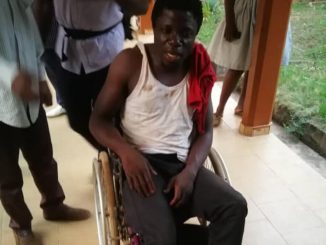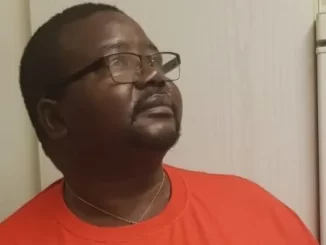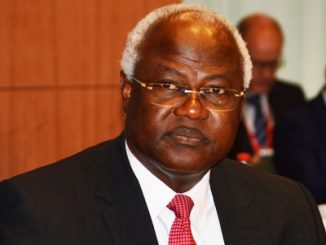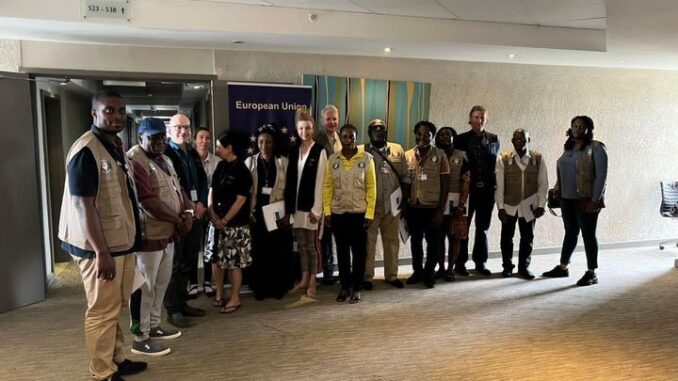
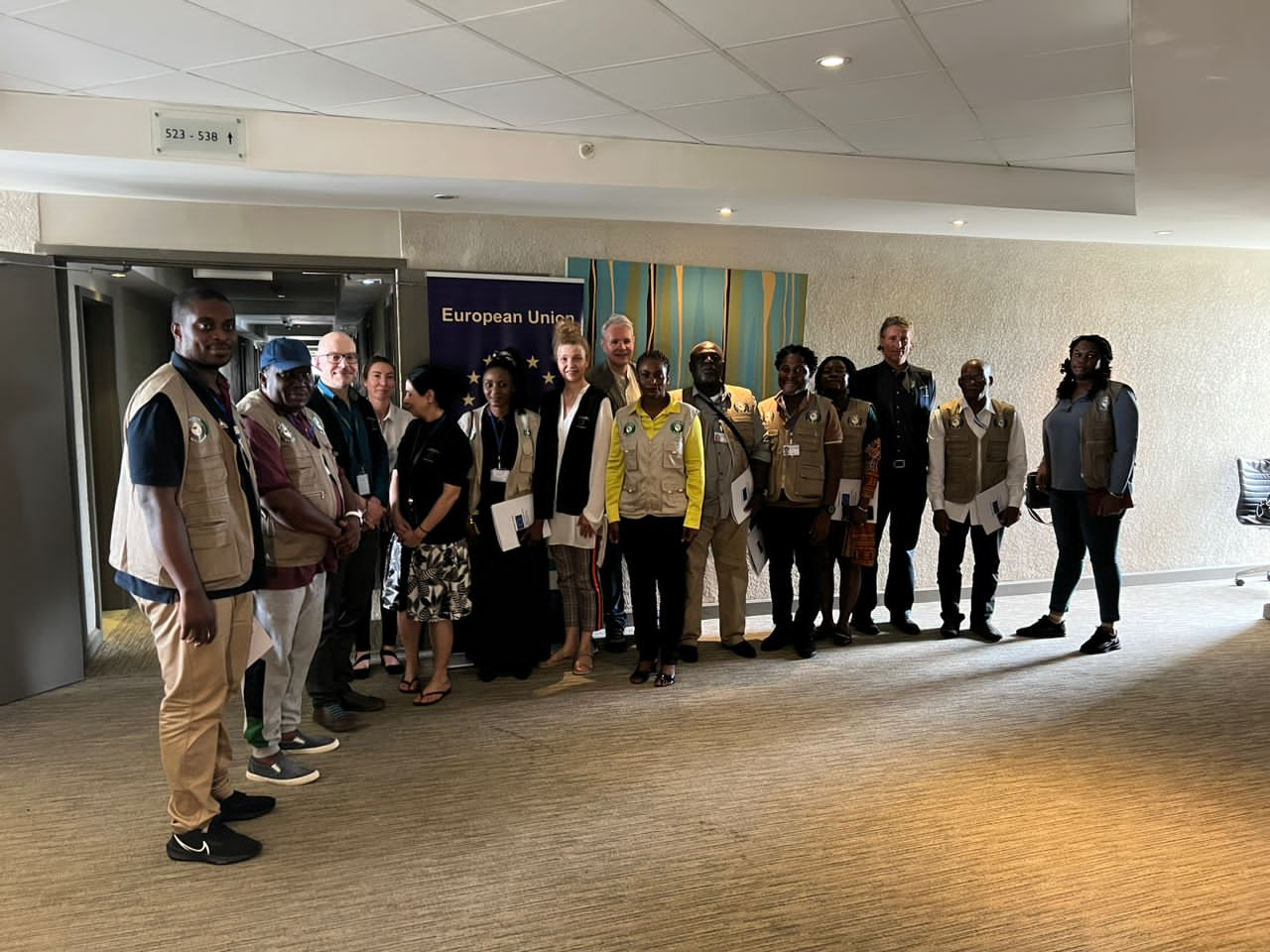
AHEAD of Sierra Leone’s presidential and parliament elections on 24th of June, the Economic Community of West African States’ (ECOWAS) Long-Term Observers have continued their consultations with political stakeholders, including the civil society organization, National Election Watch (NEW), a major player in the electoral process.
Briefing the ECOWAS Observers, NEW Chairperson Marcella Samba-Sesay, gave an overview of the political context, highlighting issues related to boundary delineation, voter registration, electoral reforms, especially women’s political participation and representation, and pre-election court cases.
She also mentioned the perceived negative impact of social media, especially “youth radicalization,” “hostile and polarized political climate,” as well as the “regionalized and ethnicized” party politics with potential consequences on the 2023 polls.
Madam Samba-Sesay disclosed that NEW would be deploying 5,000 local observers across the 3,630 polling Centers nationwide as well as incident reporters and parallel poll result tabulators.
The regional observers also met Saturday with their European Union counterparts, deployed in Sierra Leone since 11th May.
On Friday, the Observers had a session with officials of the West Africa Network for Peacebuilding, WANEP-Sierra Leone, which boasts a membership of 58 registered organizations with shared responsibility and interest in conflict prevention and building peace in the country.
The 95-strong ECOWAS Election Observation Mission to Sierra Leone, comprising 15 Long-Term and 80 Short-Term Observers is led by Dr Mohamed Ibn Chambas, a former Special Representative of the UN Secretary General and Head of the UN office in West Africa and the Sahel. The Mission is expected to meet with more stakeholders ahead of the 24th June elections.
Some 3,374,258 voters registered by the Electoral Commission for Sierra Leone (ECSL) will elect a new President from among 13 contenders, as well as 135 Parliamentarians and 493 Local Counsellors in the four-pronged vote under three electoral systems in the diamond-rich country with an estimated 8.7 million people.
A successful candidate requires 55% of valid votes to win the presidency. If no presidential candidate gets the 55% constitutional requirement, the two frontrunners will square up in a run-off vote.
A candidate requires a simple majority under the first-past-the-post electoral system to win the Mayoral contest, while Members of Parliament and Councilors will be chosen from party lists under the proportional representation electoral system.
Incumbent President Julius Maada Bio, of the Sierra Leone’s People’s Party (SLPP) and Samura Kamara of the opposition All People’s Party (APC) are the front runners for the 24th of June election. Both men contested the presidency in 2018, with Bio emerging victorious over Kamara, of the then-ruling party.
Meanwhile, former President Ernest Bai Koroma has made a passionate appeal for peaceful elections in the country.
“Fellow Sierra Leoneans, we should not be distracted, our focus should be on creating an enabling environment for citizens to exercise their civil and political rights peacefully,” the former president said in a statement.
He also called on “champions and defenders of democracy” … “especially those who have stood with us during the darkest moment of our nation’s history” … to “make your voices heard in the “protection of peace, democracy and rule of law in our beloved country.”
CULLED FROM REALNEWS

